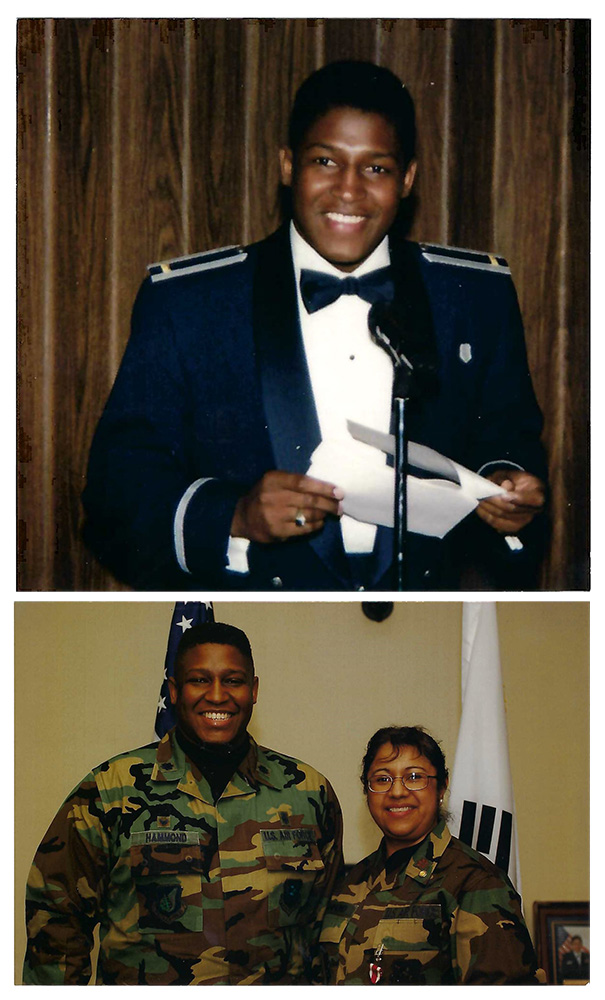About Us
About Henri T. Hammond, Esq
Henri T. Hammond, Esq. has practiced law for twenty years. In addition, he has fifteen years of personal experience with the VA. He obtained his Juris Doctorate from Saint Louis University School of Law, Masters of Law (LLM) in Litigation and Dispute Resolution from The George Washington School of Law and a Masters of Business Administration from Darden Graduate School of Business, University of Virginia. He is admitted in the State of Georgia, District of Columbia, VA accredited, US Court of Appeals for Veteran Claims, US Court of Appeals for the Federal Circuit and US Supreme Court.
In addition, he is a retired Air Force Medical Service Officer who spent twenty-one years on active duty where he spent fifteen years in Air Force medical centers, hospitals, and clinics. His operational experience culminated as Commander, 51st Medical Support Squadron, and Administrator, 51st Medical Group, Osan Air Base South Korea. He spent three years in the Office of the Assistant Secretary of Defense (Health Affairs) and three years in the Department of Defense Inspector General’s office.
Equally important, he is a service disabled veteran.

Frequently Asked Questions
Under federal law, VA accredited attorneys are only allowed to handle claim cases after the initial VA claim denial. However, we are allowed to provide consultation to initial claims for a reasonable fee.
No, there is no charge to speak to an attorney
Our fees range from 20 to 30 percent of any backpay depending on the following factors:
- How involved the attorney was in the case.
- How complex the case was.
- How much time the attorney spent on the case.
- The results the attorney achieved.
Federal law prohibits accredited attorneys from charging fees for submitting initial compensation claim submissions.
There are three requirement for service connection. First, there must be an occurrence, injury or diagnosis which occurred during active duty service. Second, there must be a current disability. Third, there must be a nexus between the in-service injury and the current disability.
Once a service member separates or retires from service, any diagnosis which occurs within one year, it is presumed to have occurred while in service. For example, a service member separates/retires on July 1, 2024 then any diagnosed condition which occurs between July 1, 2024 and July 1, 2025 is presumed in-service.
Under Appeals Modernization Act (AMA), there are three ways to appeal a claim: Supplemental Claim, Higher Level Review and Board of Veterans’ Appeal (BVA).
A supplemental claim allows the veteran to file additional information regarding the denied claim within the one year appeal period. In addition, a supplemental claim may also be filed beyond the one year appeal period to reopen a previously expired claim. However, the evidence submitted must be “new and relevant.” New evidence is information that wasn’t submitted to the VA in the past. Relevant evidence is information that proves or disproves something in the claim.
A HLR is a new review of your case by a higher level reviewer. The reviewer will determine whether an error or a difference of opinion changes the decision. You or your representative are afforded a ten minute informal teleconference. Note, you are not allowed to submit new information. The HLR request must occur within the one year appeal period.
The claim is presented before a Veterans Law Judge. The board will conduct a de novo review of the issues on appeal. You must elect one of the three review options. Those options are: (1) the direct review lane, which consists of a review of decision being appealed, without the opportunity to have a hearing have the Board consider evidence that post-dates the decision; (2) the evidence submission lane, which consists of a review of the evidence of record at the time of the decision as well as evidence the veteran submits with the notice of disagreement; (3) the hearing lane, in which the veteran has the opportunity for a Board hearing, and the Board will consider the evidence of record at the time of the rating decision on appeal plus any additional evidence submitted at the Board hearing or within 90 days after the scheduled hearing.
An individual who qualifies as a surviving spouse, surviving child, or surviving parent may apply for monthly benefits from the VA if the veteran’s death was service connected. The VA administers two programs that pay benefits to survivors of veterans whose deaths were service connected: dependency and indemnity compensation and death compensation.
This program is for surviving spouses of military retirees in receipt of Survivor Benefit Plan Annuities, the annuities benefit was offset dollar for dollar by any DIC benefits received. However, the National Defense Authorization Act for Fiscal Year 2020 amended this policy and the offset was phased out in 2023.
A survivor must file a DIC claim within one year of the veteran’s death.